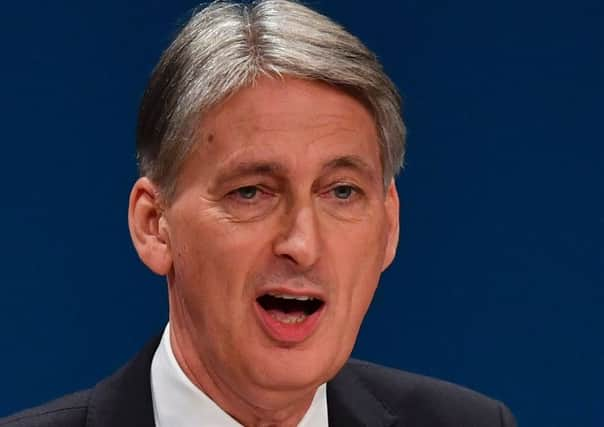Leader comment: Hammond's growth plan might bring surprise result


What was reported as good news was the rise in the Markit/CIPS purchasing managers’ index (PMI) for the manufacturing sector to 55.4 in September from 53.4 in August. This increase in our manufacturing sector was the fastest growth seen since 2014. The reason it is surging ahead is the weakening of the pound following the Brexit vote which continues to boost exports. But the weak pound has an effect the other way too, which is that manufacturing firms which need to import raw materials are seeing a rise in their costs.
The survey found that manufacturers are passing on at least part of the rise to customers in the form of higher charges.
Advertisement
Hide AdAdvertisement
Hide AdAnd the shocks to the pound are not going away. Following Prime MInister Theresa May’s setting out of the timetable for the UK to leave the EU sterling fell to a three-year low against the euro and hit its lowest level against the dollar since the beginning of July.
And there was a shift in Government policy announced yesterday that might well have further bearing on the economic balance of the country.
Chancellor Philip Hammond told the Tory party conference he will prioritise spending on new homes and transport rather than following his predecessor George Osborne’s aim to balance the books by 2020.
He said he was doing this because the Brexit vote may cause “turbulence” and business confidence would be on a “bit of a rollercoaster” and he wanted to do this to invest in growth and jobs.
The government is bringing £5bn to the house building party, a £3bn Home Building Fund to provide loans to stimulate projects and it is going to borrow a further £2bn for the “Accelerated Construction” scheme, which aims to get houses built on publicly-owned “brownfield” land available for swift development.
Now because of the performance of the weak pound that money will not be cheap to borrow.
One of the effects of the current economic environent was the return fo inflation, which yesterday was said to be easing, and it was not expected to reach the peaks that it had in previous spikes in 2008 and 2010-11.
The threat of inflation, and small signs of inflation, do mean there is a reducing chance that the Bank of England might cut interest rates again this year,
Advertisement
Hide AdAdvertisement
Hide AdBut in the longer term, if the pound remains weak, and the signs are that it will, the prospects are not so rosy. The government is creating jobs in house building and transport which will increase the demand here for goods and services. People buying those houses will increase the demand for goods and services to furnish those houses. But if imports remain relatively expensive the demand for UK pay increases to keep up with those higher costs will spiral, and inflation becomes a real concern, because it is hard to control and can have a devastating effect.